home > insights by FWB > Meet John Broadbanks

One of the photos in FWB’s booklet, EMPTY PITCHERS, depicting “Silverstream” just outside of Mosgiel, New Zealand.
“It was a Saturday morning,” writes F.W. Boreham in his 1923 Empty Pitchers (which also appeared in his 1925 book, CRYSTAL POINTERS) reflecting on his pastorate in Mosgiel, “a farmer, calling at the Mosgiel manse with eggs, told me that John Broadbanks had been ill. In the afternoon, therefore, I set out for Silverstream; and, to my delight, found John sunning himself on the broad verandah.” Readers of F.W. Boreham would be forgiven for wondering, who is John Broadbanks? As more people were introduced to FWB’s confidant through his books, many of them who got to meet Dr. Boreham would ask him about the Reverend John Broadbanks. When Dr. Geoff Pound, who completed his doctorate on the works of Boreham, was asked this question back in 2006, he wrote-
From his books these are some of the details we can glean. The Rev John Broadbanks was a neighboring minister at Silverstream when Boreham was pastor at Mosgiel, New Zealand. Both of (the) small towns are real places (there is a photo of Silverstream in Boreham’s booklet, ‘The Empty Pitchers’) and are about 10 kilometers apart, from memory). Boreham doesn’t say but it would seem Broadbanks was a Presbyterian minister.
Dr. Geoff Pound, The F.W. Boreham Official Blog Site, May 8th 2006
“JOHN BROADBANKS … WAS BY NO MEANS BRILLIANT, BUT…”
“The best debater that I ever knew was John Broadbanks. He was by no means brilliant, but he thoroughly understood his business. A fireside argument with him was an unadulterated delight. If you beat him, he laughingly acknowledged his defeat, and, if the subject was a serious one, thanked you for the new light that you had thrown upon it. If he got the better of the contention, he somehow made you feel that you had been enriched and not impoverished by the tussle, and only a pleasant sense of mental exhilaration haunted the mind afterwards.”
F.W. Boreham, ‘A Vow of Silence’, “SHIPS OF PEARL”, 1935, pgs. 163-164
F.W. Boreham refers to John Broadbanks as his sounding board, advisor, friend, and fellow minister. Boreham records that it was often John Broadbanks who had just the gem of wisdom that he needed at the time. According to Boreham, they ministered in adjacent towns which were just a buggy-ride apart. During FWB’s 10 years at Mosgiel, he and Mr Broadbanks often swapped pulpits. As a testament to Dr. Boreham’s appreciation of John Broadbanks, he used some of the royalties from his book sales to establish a small hospital, in Birisiri, East Pakistan (now Bangladesh), called The John Broadbanks Dispensary (now known as, Broadbanks Dispensary).
But even the naming of this dispensary bears a clue as to the true identity of the enigmatic John Broadbanks. F.W. Boreham as an 18 year old had desired to go to the mission field and be of use where the Gospel was most needed. He applied to serve with the China Inland Mission and was interviewed by the mission’s director, Hudson Taylor. When Dr. Taylor saw that FWB was partly crippled and Howard Crago tells us-
“With tender fact, Dr. Taylor had to point out how impracticable a missionary’s life would be with such handicaps as Frank Boreham’s injuries imposed.”
T. Howard Crago, “THE STORY OF F.W. BOREHAM”, 1962, p. 33
In his autobiography, Frank wrote about his disappointment and then resolution.
Eventually Dr. Hudson Taylor invited me to tea with him; and, with a tenderness and tact that left no string of disappointment, he pointed out to me the opportunities of doing effective missionary work at Home. My injury, he feared, would seriously hamper me on the foreign field. “Pray earnestly,” he said, “that you may be used in leading many of your friends to Christ, and then encourage them to live and work for China!”
F.W. Boreham, “MY PILGRIMAGE”, 1940
Boreham was profoundly impacted by this charge from Hudson Taylor. He took up a passionate interest in world missions and sought to do two things better than most. Firstly, he would honour Hudson Taylor’s charge to challenge as many young people to consider serving as missionaries. Secondly, he would raise as much financial and prayer support as possible for world missions. Eventually, Dr. Boreham became the Chair of the Australian Baptist Union Foreign Missions Society and was given the honour of presenting the opening address at the Australian Baptist Union’s National Conference for many years where he continued to further his dual mission. It was in his 1952 address that FWB prophesied that the last great frontier of Christian missions would be India, and that the Gospel was sure to triumph in the great land, and that “the triumph will be complete within the next 200 years! … The Church in India will be a strong, triumphant Church!” [Listen]
Boreham recognised the ‘two-handedness’ of fruitful Christian mission, where, in one hand was a Bible for proclaiming the Gospel, and in the other hand there was practical aid including medical aid. This is certainly why he would have chosen to fund this dispensary in Birisiri, albeit somewhat anonymously.
Avid readers of the works of F.W. Boreham will soon detect something odd though about the Reverend John Broadbanks. In earlier references to exchanges with Broadbanks, readers will note that many of these same incidents are later re-told in Boreham’s autobiography without any reference to John Broadbanks. This is another clue that F.W. Boreham had invented a character, in what Dr. Geoff Pound refers to as a “Dickensian” literary device.
“One of Boreham’s famous fictional characters was the enigmatic, John Broadbanks,[1] In Boreham’s development of John Broadbanks it is possible to see traces of the Dickensian “tendency toward multiple projection”[2] and the way Dickens developed “sides of himself in all the major figures in his moral and social spectrum, male and female, young and old.[3]“
Dr. Geoff Pound, The F.W. Boreham Official Blog Site, May 8th 2006
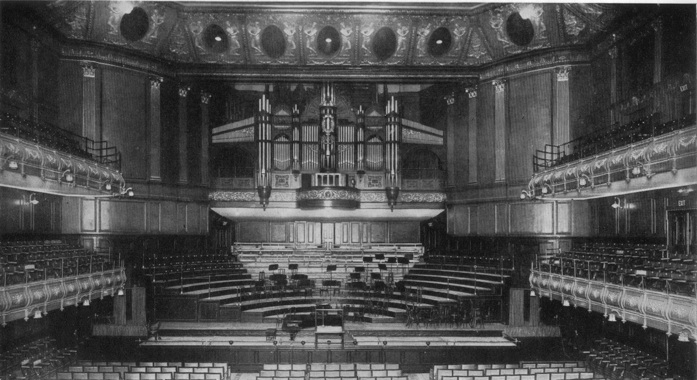
The Queen’s Great Hall, which drew crowds of thousands in multiple services to hear FWB in 1924 as the London City Mission’s National Conference Keynote Speaker
At times, Boreham used his John Broadbanks character as a stand-in for himself. One of the things which I admire most about F.W. Boreham was his humility. I wanted to introduce viewers to this side of FWB immediately in the documentary video, Navigating Strange Seas. I commenced the introductory video, The Pastoral Pilgrimage of Dr. F.W. Boreham, with FWB’s triumphant tour of England in 1924, where tens of thousands flocked to hear him, and his return to Australia – where never told a soul of the reception he had received. His literary use of John Broadbanks is a further example of this humility where he would rather have John Broadbanks speak a word of wisdom than to presume to do it himself.
THE COMPOSITION OF JOHN BROADBANKS
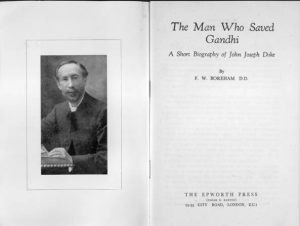 While FWB used his Broadbanks character to stand-in for himself and even at times his wife, Stella, I suspect that the canvas upon which John Broadbanks was brushed was J.J. Doke. Doke was a fellow minister who was a few years older than Boreham, as was Broadbanks. He played an incalculable role in shaping the pastoral capacity of Boreham and it was he who gave him a vision of what an educated man could be without the benefit of formal advanced schooling. He recalls one particular moment they were together –
While FWB used his Broadbanks character to stand-in for himself and even at times his wife, Stella, I suspect that the canvas upon which John Broadbanks was brushed was J.J. Doke. Doke was a fellow minister who was a few years older than Boreham, as was Broadbanks. He played an incalculable role in shaping the pastoral capacity of Boreham and it was he who gave him a vision of what an educated man could be without the benefit of formal advanced schooling. He recalls one particular moment they were together –
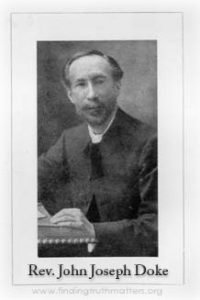 I recall a day on which the three of us – the Mistress of the Manse, Mr Doke and I – had just finished afternoon tea on the lawn. We were still toying with our cups when a young fellow rode up on a bicycle. Taking me aside, he told me that Nellie Gillespie, a member of my Young People’s Bible-Class, was sinking fast: it was unlikely that she would last the night. As soon as the messenger had left, I explained the position to Mr Doke and begged him to excuse me. “Of course,” he replied, “but, first, come and sit here beside me.” He threw himself full length in the lounge-chair, his body almost horizontal.
I recall a day on which the three of us – the Mistress of the Manse, Mr Doke and I – had just finished afternoon tea on the lawn. We were still toying with our cups when a young fellow rode up on a bicycle. Taking me aside, he told me that Nellie Gillespie, a member of my Young People’s Bible-Class, was sinking fast: it was unlikely that she would last the night. As soon as the messenger had left, I explained the position to Mr Doke and begged him to excuse me. “Of course,” he replied, “but, first, come and sit here beside me.” He threw himself full length in the lounge-chair, his body almost horizontal.
“See,” he said, “I am Nellie Gillespie. I am just about to die. I have sent for you. What have you to say to me?”
Entering into the spirit of the thing, I leaned towards him and unfolded to him the deathless story that I shortly intended to pour into the ears of the real Nellie Gillespie.
“Oh, my dear sir,” he moaned, “you’re saying far too much. It’s almost as bad as a theological lecture. Remember, I’m utterly exhausted … months of languishing consumption … I shall be gone in an hour or two … Make it very short and very simple.”
I began again, condensing into a few sentences all that I had said before.
“Shorter still,” he demanded, “shorter and simpler! Remember, I’m dreadfully tired and weak! Shorter and simpler!”
I made a third venture, telling in just a word or two of the eternal Love and the eternal Cross.
“Splendid!” he cried, springing suddenly to his feet, and clasping my hand. “Now away you go, as quickly as you can ; and remember, whilst you are praying for Nellie Gillespie, I shall be praying for you! God bless you!” And the next day he assisted me at Nellie’s funeral.
F.W. Boreham, “MY PILGRIMAGE”, 1940, pgs. 131-132
J.J. Doke also gave the young Boreham one of the most profound pieces of sagacity any minister could have hoped to have received. When F.W. Boreham had recently commenced his first pastorate, in Mosgiel, and he soon ran dry in the pulpit. It was at this time that Doke visited and listened to Frank pour out his heart. Mr. Doke gave the young FWB this advice which ultimately gave the world Dr. F.W. Boreham – “Read!” said Doke, “Read!“
“Read what?” exclaimed Frank.
“Read history!” replied Doke, “Start with Gibbon!”
And Frank did. He made a vow that from that time on he would buy a book a week and read a book a week – and for nearly the next 40 or so years he kept that vow. All thanks to J.J. Doke, who he would immortalise largely in the character of John Broadbanks, with some adaptations along the way.
THE PASSING OF JOHN BROADBANKS
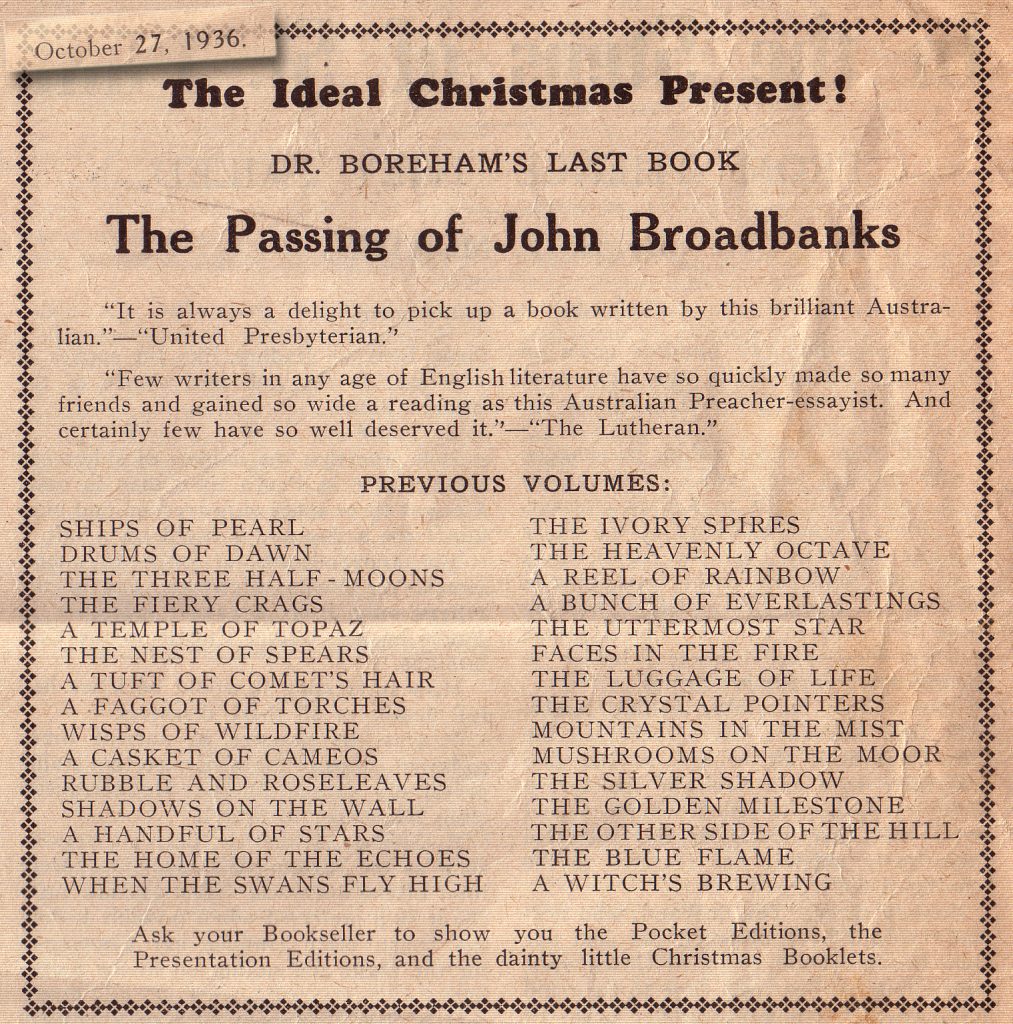 “With the passing of John Broadbanks, I myself must pass.
“With the passing of John Broadbanks, I myself must pass.
It is just about a quarter of a century since, with my heart in my mouth, I daringly submitted the first of these manuscripts to a publisher. Since then, one by one, thirty volumes have trickled from my incontinent pen.
In writing thirty volumes a man has, or has not, delivered his message. If he has, why linger? If not, it is time that he recognized his failure and abandoned the futile adventure.”
F. W. Boreham, ‘By Way Of Introduction’, “THE PASSING OF JOHN BROADBANKS”, 1936
By 1936, Dr. Boreham was lamenting that many of his colleagues had passed away. Although only in his sixties, some of his younger siblings had also died, and it appears that this had led him to feeling quite disconsolate and that his own demise was imminent. In his essay On Turning Sixty (A Witch’s Brewing), he had marvelled that he had outlived many of the men he had greatly admired.
‘Sixty!’ he repeats, incredulously. ‘Why, dear me, very few men whose names are household words with us – the men who knocked the world into shape – lived to be sixty! None of the prophets and only one of the apostles lived to be sixty. Alexander was never sixty, nor Julius Caesar nor Williams the Conqueror nor Alfred the Great. Virgil was never sixty, nor Shakespeare nor Dante nor Tasso; Francis Xavier was never sixty, nor Bishop Hannington nor James Chalmers nor John Williams; Mozart was never sixty nor Beethoven nor Mendelssohn nor Chopin; Dickens was never sixty, nor Thackeray nor Macauley nor Gibbon; Napoleon was never sixty, nor William of Orange nor General Gordon nor General Wolfe; Mrs Browning was never sixty, norJane Austen nor Charlotte Bronte nor Frances Willard. Livingstone just lived to be sixty; so did Bunyan and Chaucer and Nathaniel Hawthorne … nor Whitefield nor Spurgeon.
F.W. Boreham, ‘On Being Sixty’, “A WITCH’S BREWING”, 1932, pgs. 11-12
The closing essay in his 1936 book, THE PASSING OF JOHN BROADBANKS, bears the same title as the book hosting it. With great pathos Boreham describes his intuitive knowledge that the sickly John Broadbanks had passes away. He then describes his joy in knowing that his alter-ego had served his life as a pastor.
‘I believe in long pastorates’ he said to me one evening, as we sat together on the rocks at the Nuggets, watching the advancing tide swirling about our feet. ‘A long pastorate gives an ordinary fellow a chance at doing a decent life-work. Now look at me! I’m no star preacher; I should never set the Thames on fire along that line. If I move about – a year or two here and a year or two there – I shall never accomplish anything. But if I stay at Silverstream all my days, and do my best to affect each of my people’s lives by that cumulative influence which only comes with the passage of years, I may yet do a work that will be equal in value to that of far more brilliant men. I often noticed that a minister who spends his life in one place gets himself entroned in the hearts of people, even though nobody can remember a single sermon that he preached.’
F.W. Boreham, ‘The Passing Of John Broadbanks’, 1932, pgs. 267-268
Boreham considered these to probably some of his final words to an appreciative world. “With the passing of John Broadbanks, I myself must pass” he wrote. And in what he thought was his last word, he was still using John Broadbanks to be his champion of pastoral faithfulness and humility and inspire the next generation of pastors to prize the high calling of serving a local congregation over their lifetime. This is an important truth to consider still. May God bless more churches around the world with men like John Broadbanks as their shepherds. This prayer is embedded in his tribute to John Broadbanks and seems to have been what Dr. Boreham hoped to leave as final message.
John Broadbanks never compromised his position as a sincere lover of his fellow-men and a good minister of Jesus Christ.
F.W. Boreham, ‘A Vow of Silence’, “SHIPS OF PEARL”, 1935, p. 165
Dr. Andrew Corbett
5 Comments
Submit a Comment
-
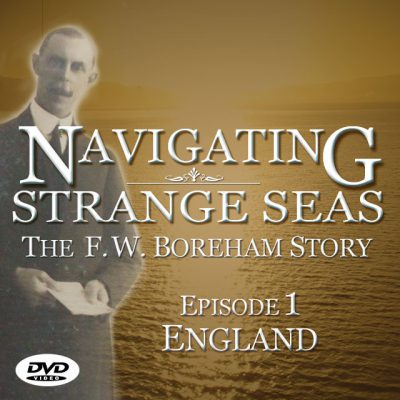
NAVIGATING STRANGE SEAS, The Dr. F.W. Boreham Story, Episode 1 – England (DVD)
$7.95 -
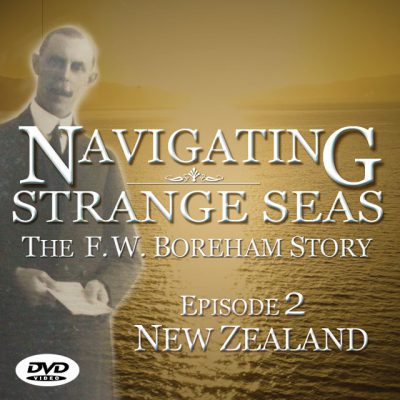
NAVIGATING STRANGE SEAS, The Dr. F.W. Boreham Story, Episode 2 – New Zealand (DVD)
$7.95 -
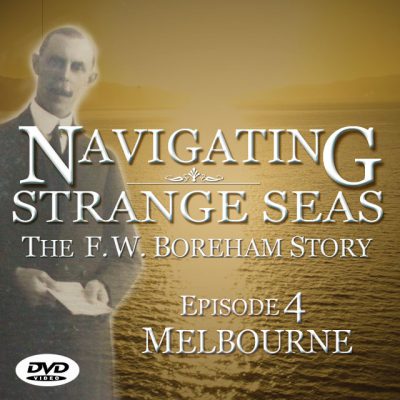
NAVIGATING STRANGE SEAS, The Dr. F.W. Boreham Story, Episode 4 – Melbourne (DVD)
$7.95 -
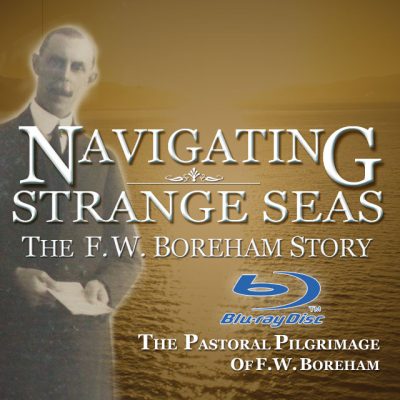
NAVIGATING STRANGE SEAS, The Pastoral Pilgrimage of Dr. F. W. Boreham – Blu ray Disc
$9.95


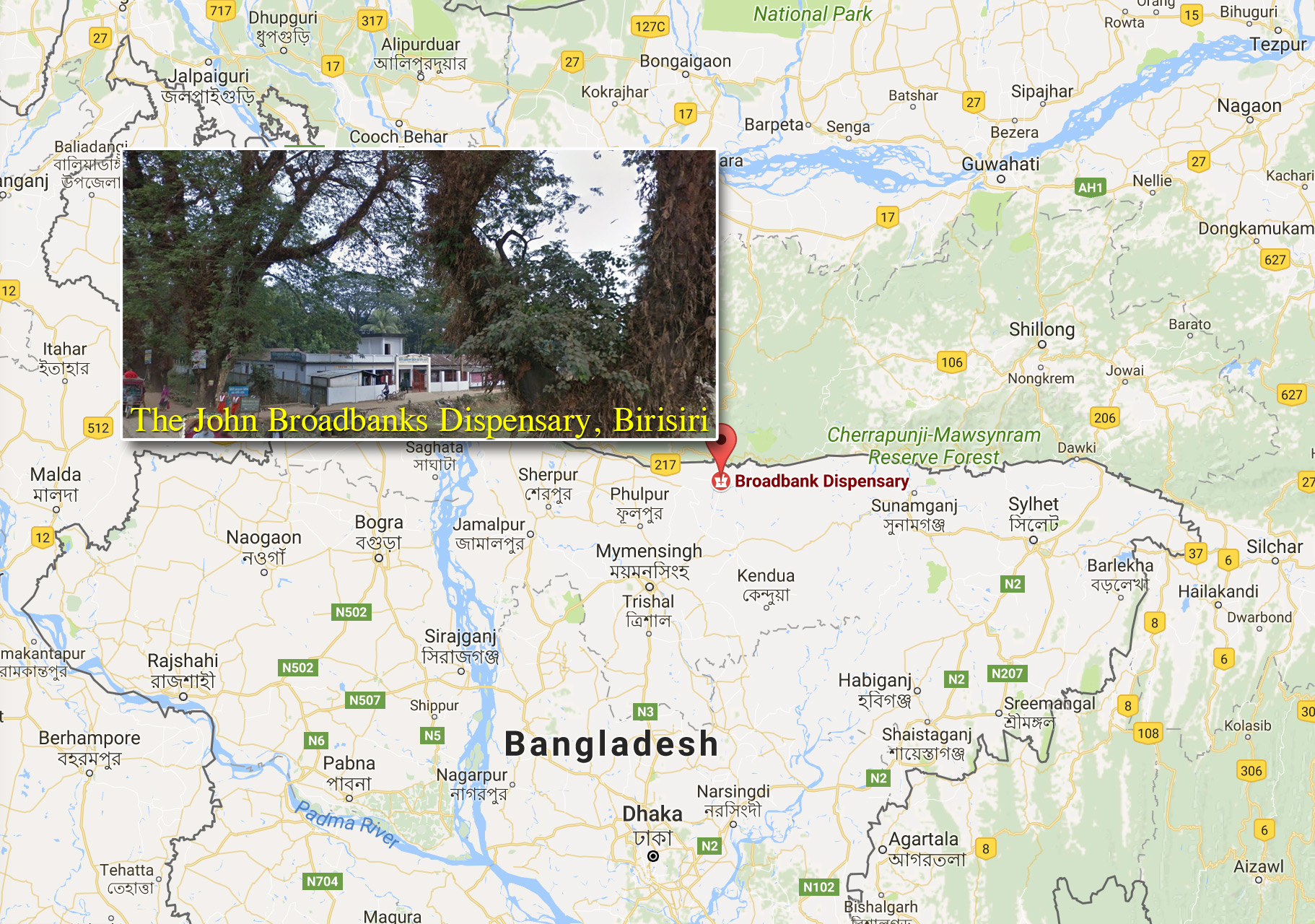
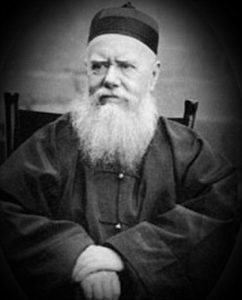
















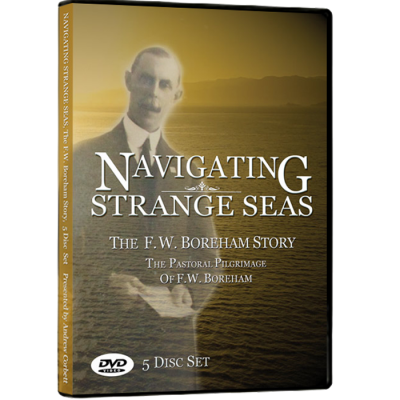
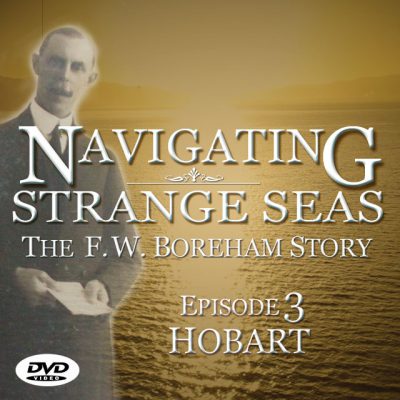
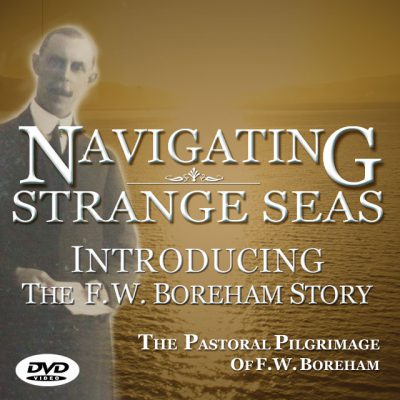
This was really interesting about John Broadbanks. Thank you for this information.
Thank you Tom.
When I started reading Boreham, I thought John Broadbanks was a real man, but as I read on, I began to see him as a composite of many men—men from whom Boreham received sage advice, who could all be synthesized into one character. Whether he started out as a real man (Doke?) or not, I greatly appreciate his inclusion in Boreham’s essays.
I’m re-reading “Rubble and Roseleaves” (downloaded as an ePub from Gutenberg Project) and was stimulated to investigate the sinking of the “Queen of the Amazons” on New Zealand wreck websites. So far I’ve found nothing to verify Boreham’s story of its wrecking at Nugget Point in “Piecrusts”, which is not to say it didn’t happen, perhaps just to say that no lives were lost. With more than 2,300 shipwrecks to date in New Zealand waters, some prioritising must be needed.
Thanks for your Broadbanks article. It helps to fill in some of the blanks in Boreham’s biographies.
A treasured copy of “The Passing Of John Broadbanks” just arrived last week, and this is a great taster before I get into that book. Keep up the great work Andrew of sharing the treasure that is F.W. Boreham.
Thank you Nicholas.